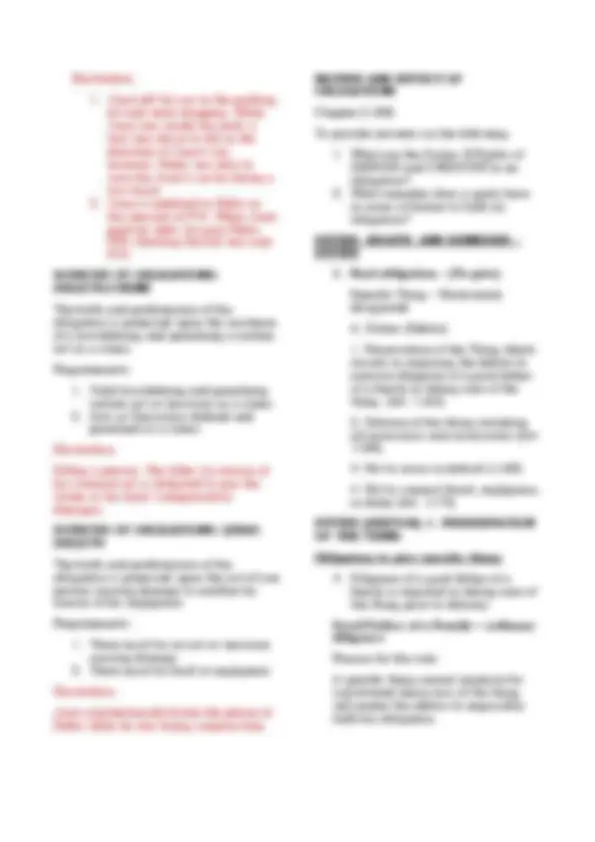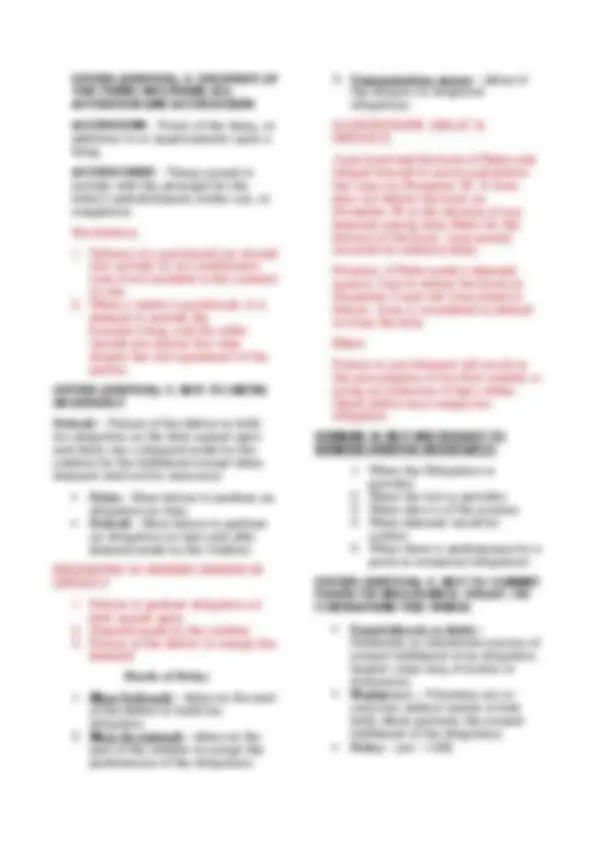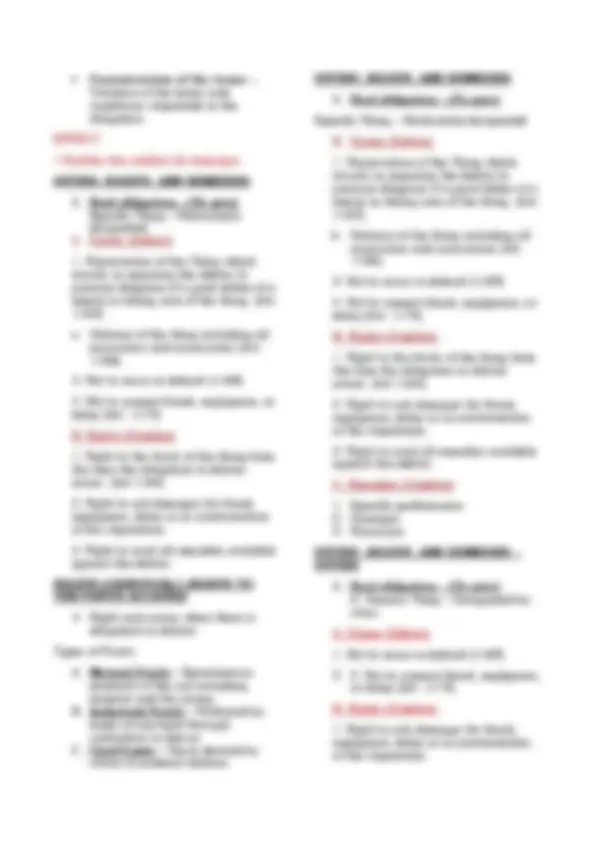





Study with the several resources on Docsity

Earn points by helping other students or get them with a premium plan


Prepare for your exams
Study with the several resources on Docsity

Earn points to download
Earn points by helping other students or get them with a premium plan
Community
Ask the community for help and clear up your study doubts
Discover the best universities in your country according to Docsity users
Free resources
Download our free guides on studying techniques, anxiety management strategies, and thesis advice from Docsity tutors
These are lecture notes in Obligations and Law Subject. I hope i can help you.
Typology: Lecture notes
1 / 7

This page cannot be seen from the preview
Don't miss anything!




➢ Civil Code of the Philippines Article 1156 to 1430 ➢ Laws on Obligations Article 1156 to 1304 ➢ Laws on Contracts Article 1306 to 1430 NECESSITIES AND FUNCTIONS ▪ Body of rules which deals with the nature and sources of obligations and the rights and duties arising from agreements and the particular contracts. ▪ Defines the Duties and Responsibilities of each party and provides for the remedy/ies in case of breach thereof. ▪ Educate and guide every person of any transactions entered into. ▪ Regulates the civil/commercial relation of every citizen. TITLE 1 GENERAL PROVISIONS: OBLIGATIONS Chapter 1 AIM To provide answers on the following:
IN GENERAL - Something a person must do because of a certain law, rule, promise or agreement, which includes civil and natural obligations. LEGAL - A juridical necessity to give, to do, or not to do. (Art. 1156) JURIDICAL NECESSITY - non- compliance is sanctioned by law. CIVIL VS. NATURAL OBLIGATIONS Civil Obligation ▪ Gives the creditor or oblige a right under the law to enforce their performance in Courts of Justice. ▪ Based on Positive Law (Civil Code). ▪ Non fulfillment gives rise to an action for damages. Natural Obligation ▪ Do not grant a right of action to enforce their performance. ▪ Based on equity and natural law. ▪ Cannot compel performance hence the unavailability for the recovery of damages. PARTIES TO AN OBLIGATION CREDITOR/OBLIGEE Person in whose favour the performance or non-performance of an action is made. DEBTOR/OBLIGOR Person required to perform an obligation. Illustration: (Obligation to support) Parents under the Family Code (law) are obliged to support their Children. Debtor/Obligor = Parents Creditor/Obligee = Children
Passive Subject - debtor or obligor. The person who has a duty. Active Subject - Creditor or oblige. He who has a right. Object or prestation - Subject matter of the obligation. It may consist of giving, doing, or not doing, Juridical or legal ties - efficient cause. The tie that binds the parties. ILLUSTRATION Obligation to support Passive subject – parent Active subject – children Object or Prestation – to support Juridical or Legal tie – law KINDS OF OBLIGATIONS AS TO SUBJECT MATTER
1. Real Obligation – ( To give) A. Specific Thing - Particularly designated B. Generic Thing – refers only to a class or genus 2. Personal Obligation – ( To do, not to do) A. Positive – Obligation to do B. Negative – Obligation not to do SOURCES OF OBLIGATION (ART. 1157)
ACCESSIONS - Fruits of the thing, or additions to or improvements upon a thing. ACCESSORIES - Things joined or include with the principal for the latter’s embellishment, better use, or completion. Illustrations:
Entitles the creditor for damages. **DUTIES, RIGHTS, AND REMEDIES
1. Real obligation – (To give) Specific Thing – Particularly designated B. Duties (Debtor)
Contravention of the terms